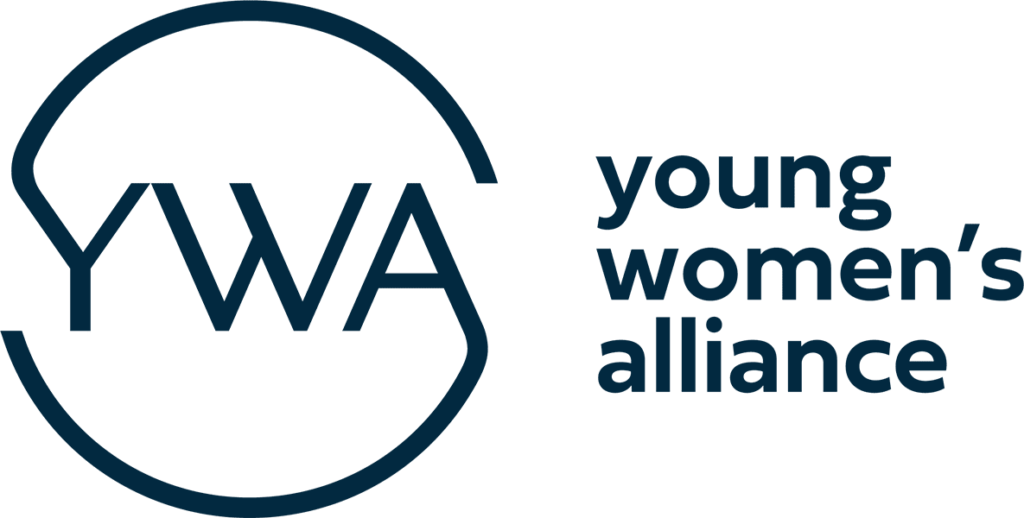Traditionally, talking about money has been seen as a relatively taboo topic. But that’s changing like never before — and that can mean only good news for women, who today are initiating more of those tough conversations and taking greater hold over their financial futures.
At a January 2020 event for YWA members, Kelly Klingaman, CFP, and Iwona Cholewa, CFA, facilitated deep discussions about perspectives on money and how to gain a better relationship with your financial life.
Kelly and Iwona use group discussion, thoughtful listening, and journaling exercises to prompt authentic communication about the important aspects of personal finance — beyond the numbers.
Conversation Circles
Conversation Circles were used to set the stage. Attendees sat in circles around their tables with a chime and candles (“a campfire”) in the middle.
“This works great for having more meaningful conversations,” said YWA attendee Sarah Simmons. “It was a way to connect with women really quickly.”
The circles created safe spaces for discussions about money and finances — and attendees soon learned that that means going a lot deeper than, “Should I stop buying $8 coffees and just get a French press or something?”
“The biggest takeaway for me was that, while we take the time to examine our childhood in relation to our current behaviors and habits, we rarely look at it from a money perspective,” said Sarah.
It turns out, though, that many of our closely held beliefs around money are rooted in our earliest experiences with it — way before we had to make our own money or start a savings account or choose a 401(k).
Conversation 1: What’s your earliest money memory?
The first conversation centered around early memories of or impacted by money.
“A lot of the ‘first memories’ had to do with getting allowances, or feeling or perceiving scarcity of money at home,” Sarah said.
Attendees were able to spend some time examining those early memories and connecting them to long-held beliefs and attitudes — some positive, and others not so much.
Conversation 2: What beliefs do you hold about money?
We often don’t connect our beliefs about money to our feelings or their roots in our deeper selves. Some of the topics explored during this conversation included:
- Describing what the word “money” means to you.
- Uncovering the events or situations that reinforced your money beliefs, and those that sparked change in that belief system.
- Exploring the connection between your beliefs and your feelings — do your beliefs make you feel safer or more vulnerable?
- Identifying past financial choices and connecting them to your larger story.
Conversation 3: What values most fulfill your life?
For this conversation, attendees used a worksheet to circle the value words that most resonated with them, eventually narrowing it down to five.
The ensuing discussion revolved around examining how daily life feels when it is more aligned with those values, compared to how it feels when your values don’t feel fully present.
“When your daily life matches your values, you’ll feel more fulfilled,” Sarah said.
And the more fulfilled you feel, the more likely you are to make positive financial choices.
Conversation 4: Do you see your values in your calendars and your checkbooks?
Narratives are powerful — so it’s incredibly important to make sure the story you’re telling yourself is backed up in fact. You may think you’re living in full alignment with your values, but would your calendar agree? What about your checkbook?
The details in those two record sources give you objective information about where you spend your time and money, and that’s the truest story you can tell yourself when you’re deeply examining your relationship with those two finite resources.
The discussion wrapped up with more exploration of feelings and attitudes toward money:
- How do you feel about spending and saving money?
- What is the most satisfying thing you’ve spent money on?
- Do you have any regrets about spending money?
Keep the Conversation Going
Attitudes around frank financial discussions continue to change and become less taboo, and as women, this is important progress to support. When women are more able to speak openly about money, financial struggles, and more, we become more financially literate, more empowered to invest in our financial futures, and more likely to openly share the kind of information that arms us in the quest to narrow the wage gap.
About the Speakers
Kelly Klingaman, CFP®, is a regional director in the Global Client Group at Dimensional Fund Advisors, where she leads business development efforts across the U.S. and educates financial advisors on Dimensional’s investment philosophy, delivering guidance and support for various practice management needs. She is also a founding member of the steering committee for Dimensional’s financial advisor Women & Wealth Community.
Iwona Cholewa, CFA, is chief investment officer for two female-owned and led independent advisory firms: Hemington Wealth Management and Powerhouse Assets. She strongly believes in goals/values-based investing and that financial goals and investments must be aligned. Prior to joining those two firms, Iwona spent 13 years at Dimensional Fund Advisors, where she spearheaded the Women & Wealth Community and has helped hundreds of advisors share their insights on women and wealth to better serve women investors.
About YWA
Providing educational programming to our members is one of the top priorities for YWA, and the group offers a number of events each month. If you’re interested in getting involved, attend an event or consider joining. Sign up to be reminded of the next open enrollment period, coming April 2020!
